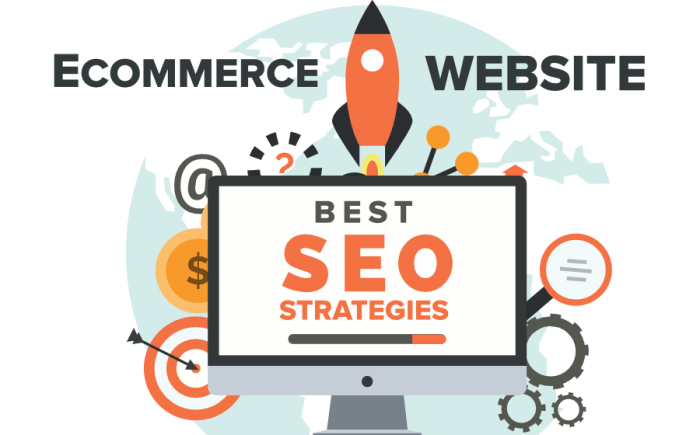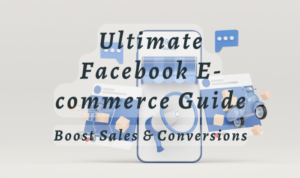SEO for E-commerce Websites – for E-commerce Websites sets the stage for this enthralling narrative, offering readers a glimpse into a story that is rich in detail with American high school hip style and brimming with originality from the outset.
When it comes to e-commerce success, plays a crucial role in driving traffic and boosting conversions. Let’s dive into the world of strategies tailored specifically for online stores.
Importance of for E-commerce Websites

In today’s digital age, having a strong online presence is essential for the success of e-commerce websites. , or Search Engine Optimization, plays a crucial role in ensuring that your website is visible to potential customers and ranks high on search engine results pages. Let’s explore why is so important for e-commerce websites.
helps in increasing online visibility by optimizing your website’s content, meta tags, and images to make it more search engine friendly. This, in turn, helps your website rank higher on search engine results pages, making it more likely for users to click on your website when searching for relevant products or services.
Driving organic traffic is another key benefit of for e-commerce websites. By targeting specific s related to your products or services, you can attract users who are actively searching for what you offer. This organic traffic is more likely to convert into sales since these users are already interested in your products.
Improved can lead to higher conversion rates by ensuring that your website is easily accessible and user-friendly. By optimizing your website’s loading speed, mobile responsiveness, and user experience, you can create a seamless shopping experience for your customers, increasing the likelihood of them making a purchase.
Overall, investing in for your e-commerce website is crucial for boosting online visibility, driving organic traffic, and ultimately increasing sales and revenue. By implementing effective strategies, you can stay ahead of the competition and reach more potential customers online.
On-page Strategies for E-commerce
In the world of e-commerce, on-page plays a crucial role in driving organic traffic and improving search engine rankings. Let’s delve into the essential on-page elements for e-commerce websites.
Optimizing Product Pages vs. Category Pages
When it comes to optimizing product pages versus category pages, there are some key differences to keep in mind:
- Product Pages: These are crucial for showcasing individual products. Make sure to optimize product titles, descriptions, and images with relevant s. Include customer reviews, product specifications, and clear CTAs to enhance user experience.
- Category Pages: Focus on optimizing category titles, descriptions, and meta tags to improve visibility in search results. Utilize breadcrumbs, filters, and internal linking to help users navigate through different product categories easily.
Importance of Optimizing Meta Titles, Descriptions, and Product Images
Optimizing meta titles, descriptions, and product images is essential for on-page success:
- Meta Titles: Craft compelling and -rich meta titles that accurately describe the content of the page. Keep them within the recommended character limit to ensure they display properly in search results.
- Meta Descriptions: Write informative and persuasive meta descriptions that entice users to click on your website. Include relevant s and a clear call-to-action to improve click-through rates.
- Product Images: Optimize product images by using descriptive filenames and alt text. Compress images to improve page load speed and enhance user experience. Including -rich captions can also boost image search rankings.
Off-page Techniques for E-commerce
When it comes to off-page techniques for e-commerce websites, there are several strategies that can help improve your site’s visibility and ranking on search engines. One key aspect of off-page is building quality backlinks, leveraging social media marketing, and forming influencer partnerships.
Building Quality Backlinks, SEO for E-commerce Websites
Building quality backlinks is essential for e-commerce websites as it helps establish credibility, authority, and relevance in the eyes of search engines. When other reputable websites link back to your site, it signals to search engines that your content is valuable and trustworthy. Here are some tips for building quality backlinks:
- Focus on obtaining backlinks from relevant and authoritative websites in your industry.
- Create high-quality, shareable content that naturally attracts backlinks.
- Engage in guest posting on reputable sites to earn backlinks.
- Avoid spammy or low-quality backlinks, as they can harm your site’s .
Social Media Marketing in Off-page
Social media marketing plays a crucial role in off-page for e-commerce websites. By leveraging social media platforms, you can increase brand awareness, drive traffic to your site, and engage with your target audience. Here are some tips for utilizing social media in off-page :
- Share your products, promotions, and blog content on social media platforms to attract potential customers.
- Engage with your followers, respond to comments, and encourage user-generated content to build a loyal community.
- Utilize social media advertising to reach a larger audience and drive traffic to your e-commerce site.
- Monitor social media analytics to track the performance of your campaigns and make data-driven decisions.
Leveraging Influencer Partnerships for Benefits
Influencer partnerships can be a powerful strategy for boosting your e-commerce site’s . Collaborating with influencers who have a strong following in your niche can help increase brand visibility, drive traffic, and generate backlinks. Here are some tips for leveraging influencer partnerships for benefits:
- Identify influencers in your industry who align with your brand values and target audience.
- Reach out to influencers with a proposal for collaboration, such as sponsored posts, product reviews, or giveaways.
- Encourage influencers to link back to your e-commerce site in their content to improve your site’s .
- Track the performance of influencer campaigns to measure their impact on your site’s visibility and traffic.
Technical for E-commerce Websites: SEO For E-commerce Websites

When it comes to optimizing an e-commerce website for search engines, technical plays a crucial role in improving visibility and ranking. Let’s dive into some key aspects of technical for e-commerce sites.
Site Speed Optimization Impact on
Site speed optimization is essential for e-commerce websites as it directly impacts user experience and search engine rankings. A fast-loading website not only improves user satisfaction but also reduces bounce rates, leading to better performance.
- Optimize images and media files to reduce file sizes and improve loading times.
- Minimize HTTP requests by combining CSS and JavaScript files.
- Utilize browser caching to store frequently accessed resources locally, reducing load times for returning visitors.
- Implement a content delivery network (CDN) to distribute content across multiple servers for faster loading speeds globally.
Importance of Mobile Responsiveness in E-commerce
With the increasing use of mobile devices for online shopping, having a mobile-responsive e-commerce website is crucial for success. Google prioritizes mobile-friendly websites in search results, making mobile responsiveness a key factor in improving visibility and attracting mobile users.
- Use a responsive design that automatically adjusts to different screen sizes and devices.
- Optimize images and font sizes for mobile viewing to enhance user experience.
- Ensure tap-friendly buttons and easy navigation for seamless mobile shopping.
- Implement accelerated mobile pages (AMP) to create faster-loading mobile pages for better performance.
Significance of Structured Data Markup for Product Listings
Structured data markup helps search engines understand the content of product listings on e-commerce websites, enabling rich snippets and enhanced search results. By providing detailed information about products in a standardized format, structured data markup improves visibility and click-through rates for e-commerce sites.
- Use schema.org markup to provide search engines with specific product details such as price, availability, ratings, and reviews.
- Include product identifiers like GTINs (Global Trade Item Numbers) and MPNs (Manufacturer Part Numbers) to improve product recognition in search results.
- Utilize JSON-LD format for structured data implementation to ensure accurate and efficient indexing by search engines.
- Regularly test and validate structured data markup using Google’s Rich Results Test tool to ensure proper display in search results.





